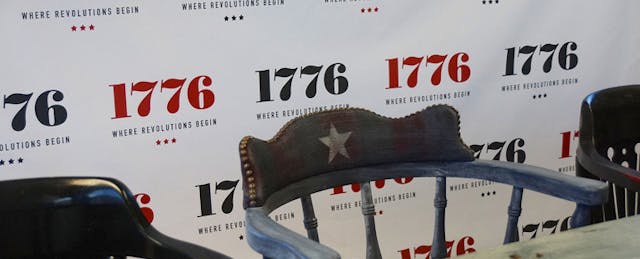Pearson announced on July 29 a "three-pronged partnership" with Washington, D.C.-based tech incubator, 1776, as part of its ongoing efforts to tap into edtech innovations at the startup level.
1776 wants to be D.C.'s ground zero for startups tackling education, healthcare, energy and transportation. Launched in April 2013, it currently runs an incubator program that offers mentorship and classes on the ins-and-outs of starting a company. Later this fall, it will also launch a "Super Accelerator" program similar to other tech accelerators like Y Combinator. 1776 will take equity from participating companies in return for cash investments.
Already, 1776 has over 140 startups for its incubator program, among which 30 to 35 are working on education, shared Evan Burfield, co-founder of 1776.
The three "prongs" of Pearson's involvement include the following non-monetary support: office hours and classes for the companies in the incubator, mentorship for edtech startups in the Super Accelerator, and sponsorship for 1776 events. Pearson currently has a full-time representative on the campus. Entrepreneurs will also have access to Pearson executives from around the world who often stop by D.C.
In an interview with EdSurge, Diana Stepner, Pearson's Head of Future Technologies, stated that "Pearson will not be putting any money directly into the Super Accelerator program or invest in any of its startups." But she did not discount the possibility that Pearson will actively look for ways to partner with companies in deals that involve money.
Pearson's partnership with 1776 is similar to that with Rocketspace, a co-working space in San Francisco. There the company also maintains a physical presence to connect with education startups, host edtech events, and explore potential business partnerships. In February 2013, Pearson announced a distribution partnership with edtech startup Top Hat, then housed at Rocketspace, for its mobile classroom response system.
The 1776 partnership will also serve as a pipeline for Pearson's internal incubator, Pearson Catalyst.Stepner stated in the press release that "we have already enjoyed working with 1776 to identify edtech startups for our own Pearson Catalyst accelerator program."
She also added that "many startups in D.C. are working on the policy and government side of education, which gives us a good balance to the techie, product-driven approach for edtech startups in the [SF] Bay Area."
Pearson's proactive efforts to reach out to startups suggests the company is serious about staying ahead of the innovation curve to avoid seeing its business "disrupted." Said Burfield: "Pearson started as a publishing company, but to be a successful platform company, they need to foster an ecosystem of innovators around them."


